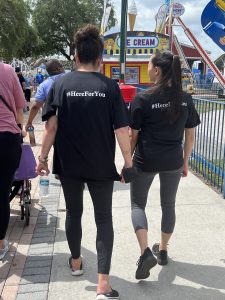Navigating Divorce for Special Needs Families
 “I want a divorce” are difficult words to say. Reaching this point can be especially difficult when the welfare of children comes into play, and even more so for parents with a special needs child. The issues of child custody, visitation, spousal support, and property division are significantly more complex to negotiate. As part of your divorce proceeding, you will want to make sure that you consider what the “day in the life” of caring for your child looks like and who will be the primary caregiver. You will also need to consider what support your child will require throughout their life, depending on their capacity for independent living and income.
“I want a divorce” are difficult words to say. Reaching this point can be especially difficult when the welfare of children comes into play, and even more so for parents with a special needs child. The issues of child custody, visitation, spousal support, and property division are significantly more complex to negotiate. As part of your divorce proceeding, you will want to make sure that you consider what the “day in the life” of caring for your child looks like and who will be the primary caregiver. You will also need to consider what support your child will require throughout their life, depending on their capacity for independent living and income.
Dissolution of Marriage & Special Needs
The Dissolution of Marriage agreement is a critical component in determining the ongoing support of your child. In addition to spousal support, separation of assets, and custodial care provisions, specific attention needs to be given to the needs of the child’s current financial care obligations and the responsibility of care. It is imperative to have a conversation about the transition into adulthood, including guardianship, eligibility for government or private agency benefits, employment, recreation, social skills, independent living, and custodial care.
Child Support
In a typical divorce, child support and custody end at 18 or when the child graduates from college. However, parents with a special needs child will have to plan for life-long caregiving. Under Florida law, the mental or physical incapacity must have begun before 18, when child support otherwise terminates. Investigating how your special needs child will receive financial and protective services as an adult is not exclusive to those parents going through a divorce. Still, the documentation of those agreements certainly is.
Educating yourself on what is needed to provide life-long support for your adult child is imperative; seek counsel from a family law professional and financial planner. They can help explain special needs planning and discuss the opportunities and agencies that can lend support. This may include setting up a Special Needs Trust, determining the right life insurance plan, assigning beneficiaries, and preparing a power of attorney. It is also critical to find someone who has expertise in applying for Supplemental Security Income or Florida Medicaid benefits.
Help for Divorce & Special Needs
Many nonprofit and professional organizations support families with special needs children as they are going through a divorce. It is also essential to get help building a strong, inclusive, and supportive community as you move forward as a single parent. These organizations can introduce you to much-needed services. Also, they will connect you with like-minded people who can share your experience first-hand. These people could become a support system for you and your child.
One organization is Best Buddies. They are an international nonprofit 501(c)(3) organization dedicated to establishing a global volunteer movement that creates opportunities for one-to-one friendships. Also, the organization integrates employment, leadership development, and inclusive living for people with intellectual and developmental disabilities (IDD).
Rebecca L. Palmer Law Group Supports Best Buddies
 The Rebecca L. Palmer Law Group has long supported the Best Buddies Orlando Chapter. In support of their mission and positive impact on our community, our firm participated in the Best Buddies Friendship Walk on Saturday, April 30, 2022, at 10:00 a.m. Join us by visiting our Friendship Walk team page. There, you can join the team, donate, and share your support on social media. https://www.bestbuddiesfriendshipwalk.org/orlando/supporting/#RLPLaw
The Rebecca L. Palmer Law Group has long supported the Best Buddies Orlando Chapter. In support of their mission and positive impact on our community, our firm participated in the Best Buddies Friendship Walk on Saturday, April 30, 2022, at 10:00 a.m. Join us by visiting our Friendship Walk team page. There, you can join the team, donate, and share your support on social media. https://www.bestbuddiesfriendshipwalk.org/orlando/supporting/#RLPLaw
Rebecca L. Palmer, Esq. is a Family & Marital Law attorney practicing in Orlando, FL. She is the Managing Partner of the Rebecca L. Palmer Law Group, and she can be reached at rebecca@rlplawgroup.com